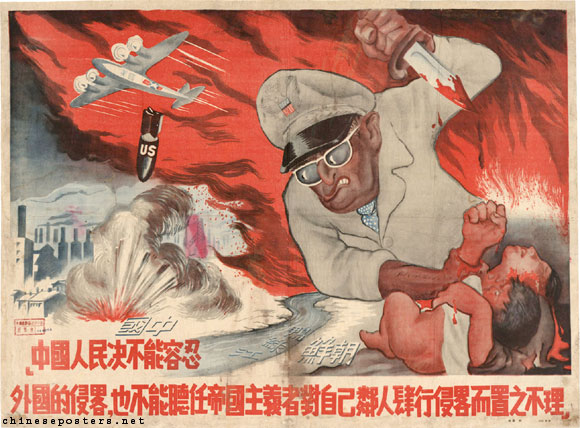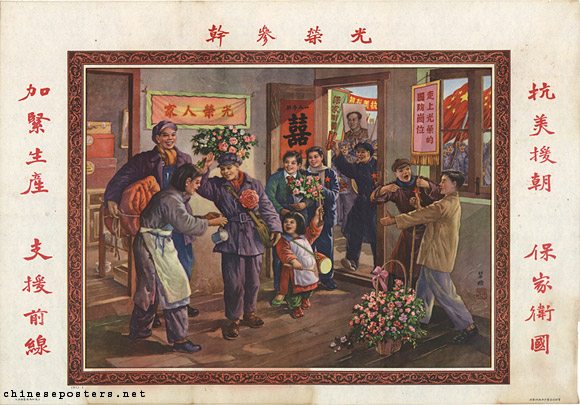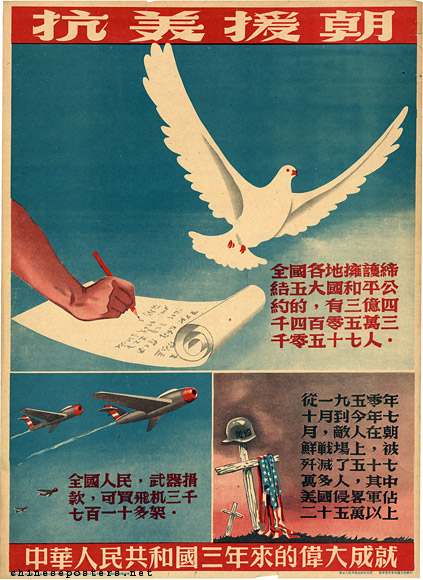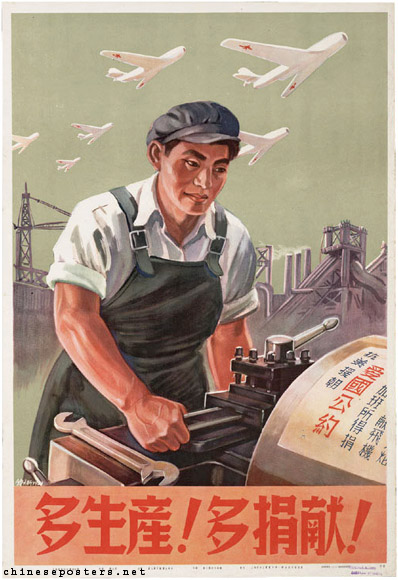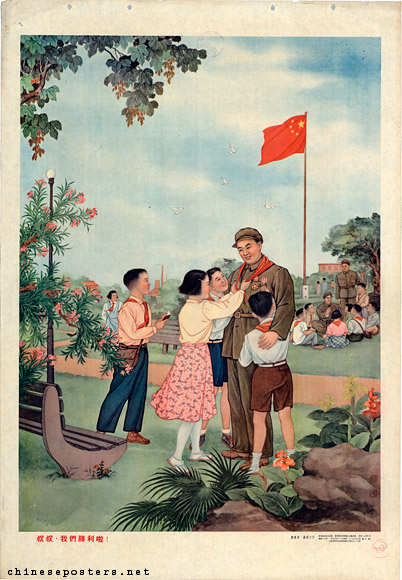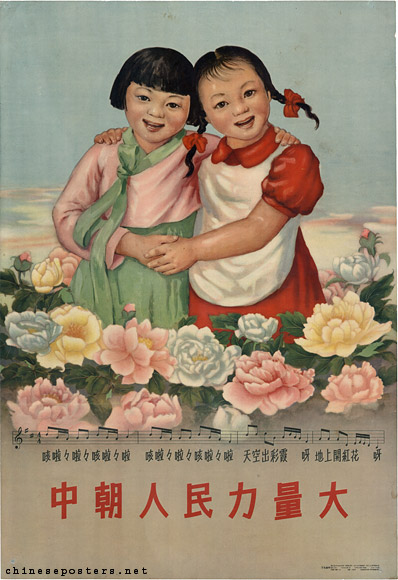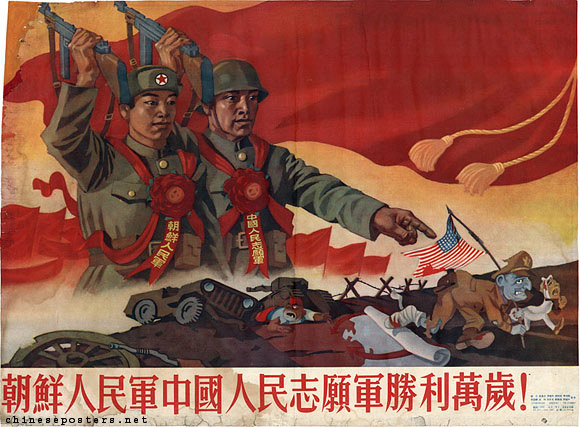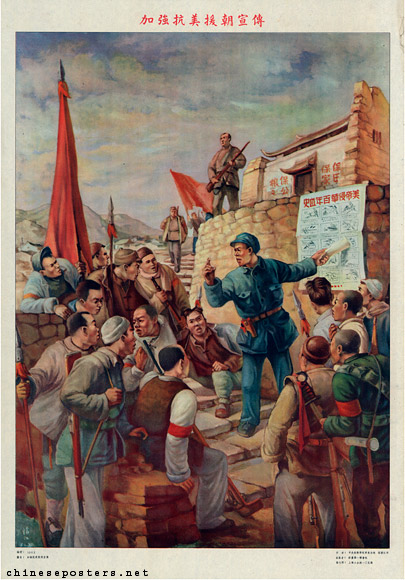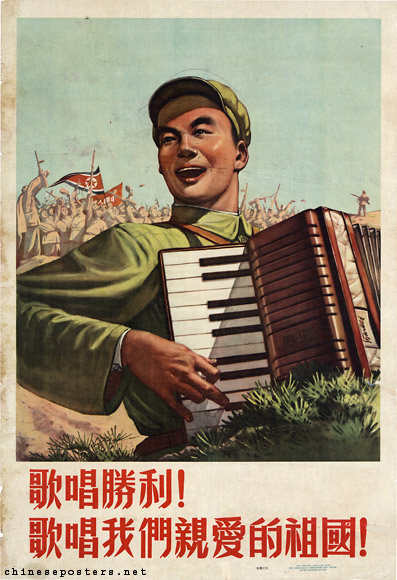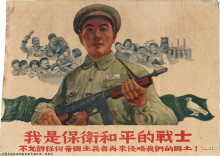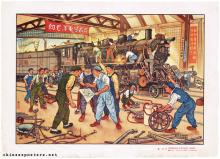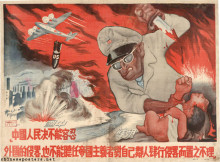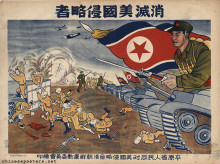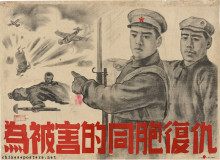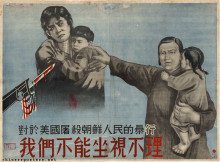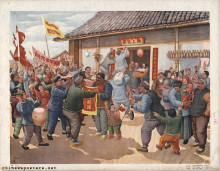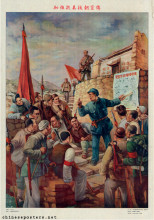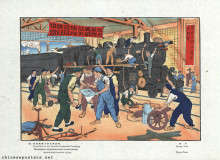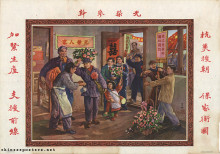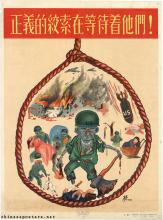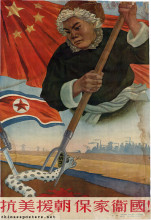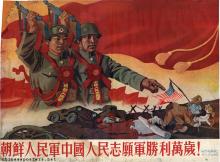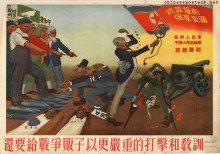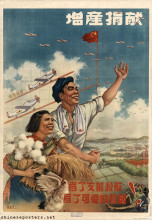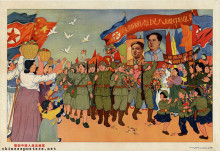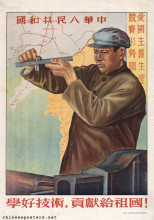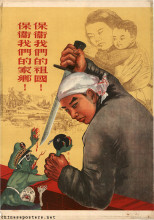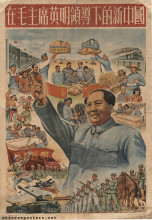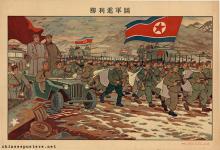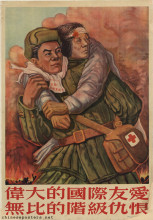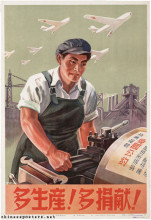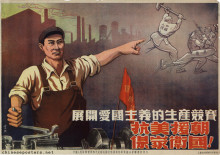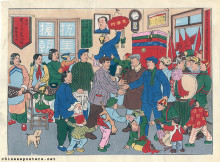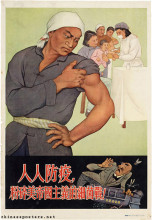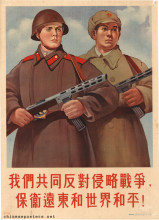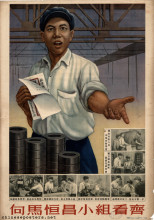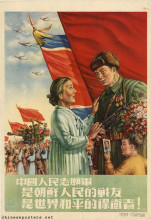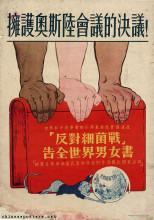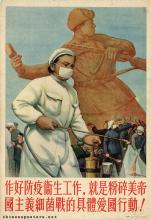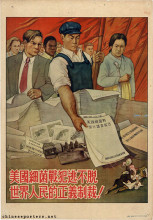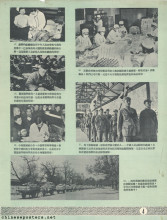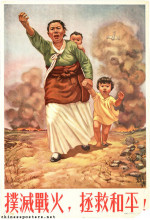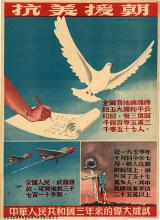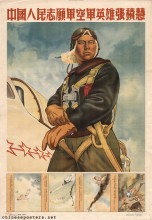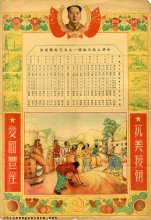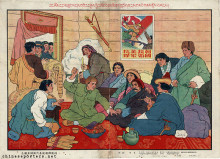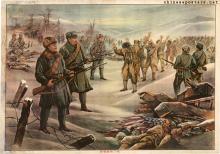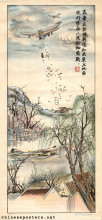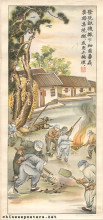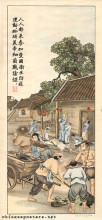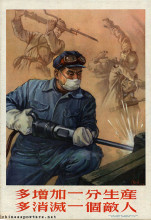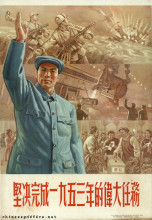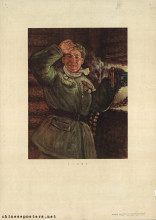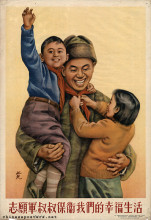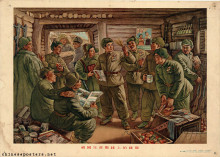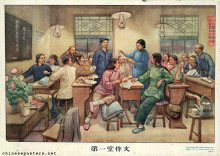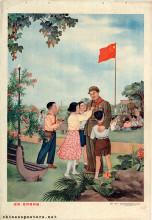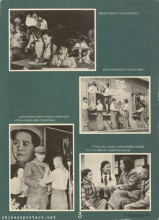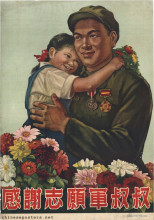The Chinese people absolutely cannot condone the encroachment of other countries, ca. 1950
In late October 1950, little more than a year after the People's Republic was founded, China entered the Korean War, still called the "War to Resist America and Aid Korea", to support North Korea. More than two million Chinese, part of the Chinese People's Volunteer forces led by Peng Dehuai, were drawn into the conflict. Until the present day, Chinese participation is considered to have been justified, although increasing numbers of Chinese are questioning the decision to come to Pyongyang's aid. Some argue that it thwarted China's early ambitions to liberate Taiwan.
It's glorious to take part, to oppose America, support Korea, protect the home and the nation, 1951
Although the Chinese troops were volunteers and consisted largely of veterans from the Anti-Japanese and Liberation Wars, signing up to fight in Korea was a favorite topic in the posters of the earliest days of the PRC, seen as an expression of patriotism.
Produce more! Contribute more!, ca. 1951
The Korean Conflict put China's economic reconstruction, which had only just started, under enormous pressure. On the poster above ("Produce more! Contribute more!"), the leadership's dilemma is illustrated by the text on the right. This "Patriotic Pledge" starts with the call to "resist America and support Korea".
Uncle, we have been victorious!, 1953
The power of the people of China and (North) Korea is great, 1955
Not many Chinese posters have been produced that explicitly show North-Koreans actively engaged in their struggle against US troops during the Korean War. In the few extant examples that are available today, the North-Koreans are barely distinguishable from their comrades-in-arms from the Chinese People's Volunteers. In the poster below, the member of the Chinese Volunteers is standing on the right. It often creates the impression that the Chinese are doing the bulk of the fighting. A completely different picture emerges, of course, when we look at North-Korean sources, if only because they in turn do not acknowledge any of the armed support they received from the Chinese.
Long live the victory of the Korean People's Army and the Chinese People's Volunteers Army!, 1951
Chinese posters devote more attention to their own involvement in the conflict, and by stressing the essentially humanitarian aspects of their actions. Domestic support is drummed up, for example, by showing Korean civilians being bombed by American fighter planes. Heroics are reserved mainly for members of the Volunteers. Many of the early martyrs that were held up for emulation by the Chinese people were killed on Korean soil. They included Huang Jiguang (who threw himself against the machine-gun slit of a dugout manned by American troops and died) and Yang Gensi (who, clutching a satchel charge to his body, threw himself into a machine gun nest manned by American troops). Luo Shengjiao, on the other hand, drowned while saving a Korean boy who had slipped under the ice covering a lake. Luo's padded winter uniform dragged him down in the icy waters. A recurring theme is the one where returned Chinese Volunteers tell battle stories at home.
Strenghten the propaganda to oppose America and support Korea, 1951
Sing about victory! Sing about our beloved nation!, 1954
Although China's relations with South Korea have improved since the early 1990s, in particular in the field of economic cooperation, the ties with North Korea can still be considered close.
Michael Sheng, "Mao’s Role in the Korean Conflict: A Revision", Twentieth-Century China 39:3 (2014), 269–290
Photo Gallery provided by Renmin ribao with lots of old, B&W photo's of the Korean Conflict (in Chinese)
"Chinese veterans granted medals for entering DPRK in War to Resist US Aggression and Aid Korea", People's Daily, 22 October 2020
